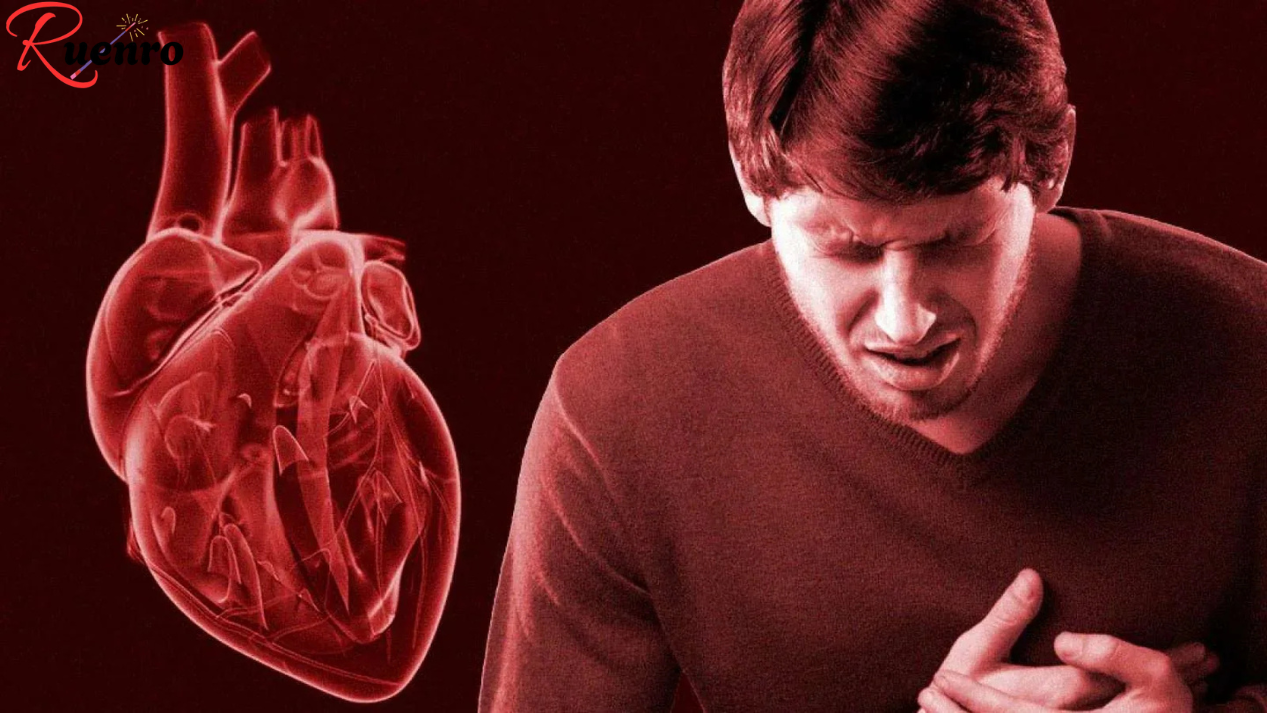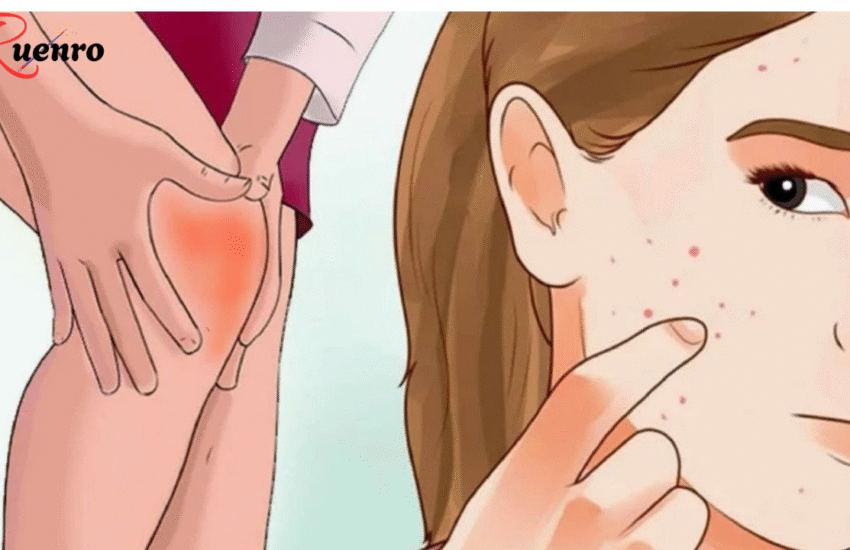One Month Before a Heart Attack, Your Body Will Warn You – Here Are the 6 Signs
Heart attacks rarely happen without warning. In most cases, your body tries to signal that something is wrong — but these signs are often ignored or mistaken for minor issues. Recognizing them early can literally save your life.
Heart disease is the leading cause of death worldwide, affecting both men and women. What makes it especially dangerous is that the symptoms of an impending heart attack can start weeks before the actual event. Understanding what to watch for gives you the power to act fast, get medical help, and prevent disaster.
Here are six warning signs your body may send up to a month before a heart attack.
1. Unusual Fatigue
Extreme, persistent fatigue is one of the earliest and most common warning signs — especially in women.
- Why it happens: When arteries begin to narrow and restrict blood flow to the heart, your heart has to work harder to pump oxygen-rich blood. This extra effort makes you feel tired even if you haven’t done anything strenuous.
- What it feels like:
- Feeling exhausted after simple tasks (like climbing stairs or carrying groceries).
- Difficulty concentrating or staying awake.
- Needing more rest than usual but still feeling drained.
- When to act: If fatigue appears suddenly, lasts for several days, or gets worse without an obvious cause, see your doctor.
2. Chest Discomfort or Pressure
This is the most classic and well-known sign — but it doesn’t always feel like a sharp pain.
- What it feels like:
- A feeling of pressure, fullness, squeezing, or tightness in the center of your chest.
- The sensation may come and go or last for several minutes.
- Some people describe it as “an elephant sitting on the chest.”
- Why it happens: When arteries become blocked or blood flow to the heart is reduced, your heart muscle doesn’t get enough oxygen.
- Important: Not everyone experiences chest pain the same way. In women, older adults, and diabetics, chest discomfort can be mild or even absent. Never ignore unusual sensations in your chest — even if they seem minor.
3. Shortness of Breath
If you find yourself struggling to catch your breath during normal activities or while at rest, it could indicate your heart isn’t pumping efficiently.
- Why it happens: The heart and lungs work together to deliver oxygen throughout the body. When your heart weakens, oxygen exchange is reduced, causing difficulty breathing.
- What to look for:
- Shortness of breath while lying down or waking up suddenly gasping for air.
- Feeling winded after minimal physical effort.
- Accompanied by fatigue or mild chest tightness.
- When to act: If breathing feels labored or you can’t take a deep breath easily, seek immediate medical advice.
4. Pain in Other Areas of the Body
Heart attack pain isn’t always limited to the chest. The discomfort can radiate to other parts of your body.
- Common areas include:
- Left arm (most typical)
- Upper back
- Shoulders
- Neck or jaw
- Even the stomach, which can mimic indigestion
- Why it happens: When a heart artery is blocked, nerves in nearby areas can become irritated, sending pain signals to other parts of the body.
- When to act: If pain spreads from your chest to your arm, neck, or jaw — or if it feels like intense pressure or burning — get medical help immediately.
5. Dizziness or Lightheadedness
Feeling dizzy or faint can be more than just dehydration or standing up too quickly — it may indicate a drop in blood pressure related to heart issues.
- Why it happens: A weakened heart can’t pump enough blood to maintain steady blood flow to the brain. As a result, you may feel dizzy, lightheaded, or even close to fainting.
- What to watch for:
- Sudden dizziness accompanied by chest pain, nausea, or sweating.
- Episodes that occur during mild activity.
- When to act: If dizziness is frequent, sudden, or associated with other symptoms like shortness of breath or fatigue, don’t ignore it. Seek medical attention right away.
6. Cold Sweats and Nausea
Breaking out in a cold sweat for no apparent reason — especially while resting — can be a sign of an impending heart attack.
- Why it happens: When a heart attack is approaching, your nervous system goes into overdrive. The body activates a “fight or flight” response, which can cause sweating, nausea, or vomiting.
- What it feels like:
- Cold, clammy skin.
- Dizziness or a feeling of “impending doom.”
- Sweating profusely even when the room isn’t hot.
- When to act: If sweating is accompanied by chest pressure, nausea, or lightheadedness, call emergency services immediately.
⚠️ Other Symptoms to Watch Out For
While the six signs above are the most common, other warning signs can appear depending on the person:
- Swelling in the feet, ankles, or legs (fluid buildup due to poor circulation).
- Irregular or rapid heartbeat.
- Indigestion or heartburn that doesn’t improve with antacids.
🩺 What to Do If You Notice These Symptoms
If you experience one or more of these warning signs for more than a few days — especially if they worsen — don’t delay. Here’s what to do:
- Seek medical attention immediately. Go to the emergency room or call emergency services if you suspect a heart attack.
- Monitor your symptoms. Write down when they started, how long they last, and what triggers them.
- Check your blood pressure and pulse. Unusually high or low readings can provide important information for doctors.
- Don’t drive yourself. Always have someone else take you to the hospital if you’re feeling weak or dizzy.
❤️ How to Prevent a Heart Attack
Prevention is always better than cure. Here are simple lifestyle changes that can significantly reduce your risk:
- Eat heart-healthy foods: Focus on fruits, vegetables, whole grains, fish, nuts, and olive oil.
- Exercise regularly: Aim for at least 30 minutes of moderate activity five days a week.
- Avoid smoking and limit alcohol. Both damage blood vessels and raise blood pressure.
- Manage stress: Chronic stress increases the risk of heart problems. Practice deep breathing, meditation, or yoga.
- Get regular check-ups: Monitor cholesterol, blood pressure, and blood sugar levels.
🧠 Final Thoughts
A heart attack doesn’t strike without warning. Your body usually tries to tell you — but it’s up to you to listen.
If you notice unusual fatigue, chest pressure, shortness of breath, pain in the arm or jaw, dizziness, or cold sweats, don’t dismiss them as stress or tiredness. These may be your body’s early alarm bells.
Taking action early can prevent irreversible damage — or even save your life.



